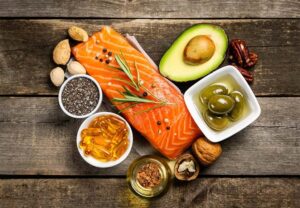By Elizabeth Hartland
Shingles is an acute inflammation of one or more posterior root ganglion of the spine or of the trigeminal nerve. The inflammation and infection is caused by the presence of DNA virus ‘Herpes zoster’, which affects the nerve endings in the skin.
This virus can lie dormant in the spinal chord for years, perhaps introduced from a childhood infection of chickenpox. The nerve pain can continue for months, even years after the blisters have cleared. Shingles may be contracted by direct contact with a burst blister.
Symptoms include:
– Two to four day fever
– Red painful rash
– Clear blisters lasting 7-14 days
– Blisters dry to form crusty scabs and scars
– Pain following the infected nerve path, often on just one side of the body
– Intense burning / itching
– Impaired vision if infection or blisters are near the eye
The Herpes zoster virus can become activated when the immune system is left vulnerable due to:
– Lack of sleep
– Fatigue
– Injury
– Infection
– Stress
– Anti-cancer drugs
Dietary and lifestyle recommendations
To overcome the shingles infection, it is of great importance to balance the dietary intake of two amino acids: arginine and lysine. Arginine encourages activation of the virus whilst lysine has an anti viral action. Lysine also inhibits the synthesis of arginine rich proteins in the body. Lysine is found in animal proteins, whereas arginine is found in vegetable proteins.
Include:
Antioxidant foods – highly coloured fruits and vegetables are rich in the antioxidant nutrients necessary for immunity and detoxification. Have a colourful salad daily to boost your immunity.
Juicing – freshly juiced fruits and vegetables like carrot, beetroot, apple, etc, act as good cleansers to the body and are rich in vitamins and minerals vital for immunity and healing.
Fresh fruit – build up to 3-5 portions of fresh fruit a day. Blue and purple berries are particularly good along with citrus fruit rich in vitamin C.
Fresh vegetables – build up to 3-5 servings of fresh vegetables a day. Increasing the soluble fibre content of the diet helps with detoxification, reducing the toxic load on the body and boosting immunity.
White meat and oily fish – concentrated sources of protein and omega-3, essential fatty acids important for immune function.
Lysine rich foods – see table.
Avoid:
Caffeine, sugar and sweet foods – confectionery, cakes, pastries, biscuits, puddings, tea, coffee, coke and other soft drinks.
Artificial colourings, additives and MSG – these may aggravate the nervous system.
Alcohol and smoking – act as stresses to the body and reduce immunity.
Trans fats and hydrogenated vegetable oils – disruptive to the nervous system.
Arginine rich foods – see table.
Do not touch sores. Avoid scratching. Do not share towels or flannels.
||features@algarveresident.com
Elizabeth Hartland has a Bachelor of Science Degree in nutrition, together with a Diploma from the Institute of Nutritional Therapy. She is married with two young children and has a passion for good nutrition and helping others to find better health. 282 427 652


















